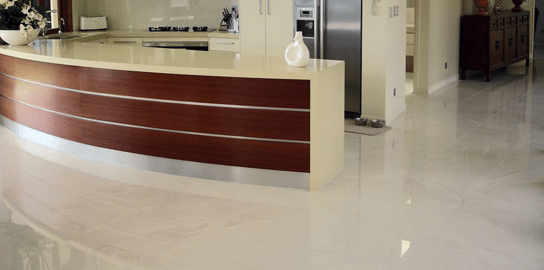The more you tile, the more you will come to know that not all adhesives are the same. Find tips on how to lay floor tiles here.
Ready mix adhesives dry in the true sense of the word. They lose water and hence “dry out”. How does this come into play when tiling? Take for instance tiles that are completely vitrified such as porcelain tiles. Vitrified tiles have been processed so that they do not absorb water and are virtually non-porous. Therefore when you place a porcelain tile using ready made adhesive, the moisture cannot escape via the tile and therefore has only one place by which to escape—the grout joints.
How does that affect the drying process? It means that a “picture frame” drying effect will occur. The center of the adhesive on the back of the tile will not dry, since the moisture cannot escape via the non-porous porcelain tile. However the edges, being near the grout joints, will dry out.
Therefore, when using porcelain floor tiles, it is recommended that powdered adhesives that dry by a chemical process be used rather than those that dry via water loss. Many times these powdered adhesives are called “rapid dry”. These adhesives will provide uniform drying, and ensure that your tile is fully supported.
If the wall is plastered, then a cement based adhesive is recommended. However the walls should be primed first.
When mixing adhesive, always add it to clean, cold water. Sounds simple enough. What’s the difference? Well, if you add put the adhesive powder in the bucket first then add the water after, you will find it difficult to get the correct consistency and your adhesive will be lumpy instead of a smooth mixture. It will also take longer to mix.
Warm or hot water will make the adhesive dry faster and could dry out before all the product has been used.
Tile Factory Outlet has some great prices on quality adhesives along with a massive selection of porcelain tiles. Visit our showroom and get a great deal now!


